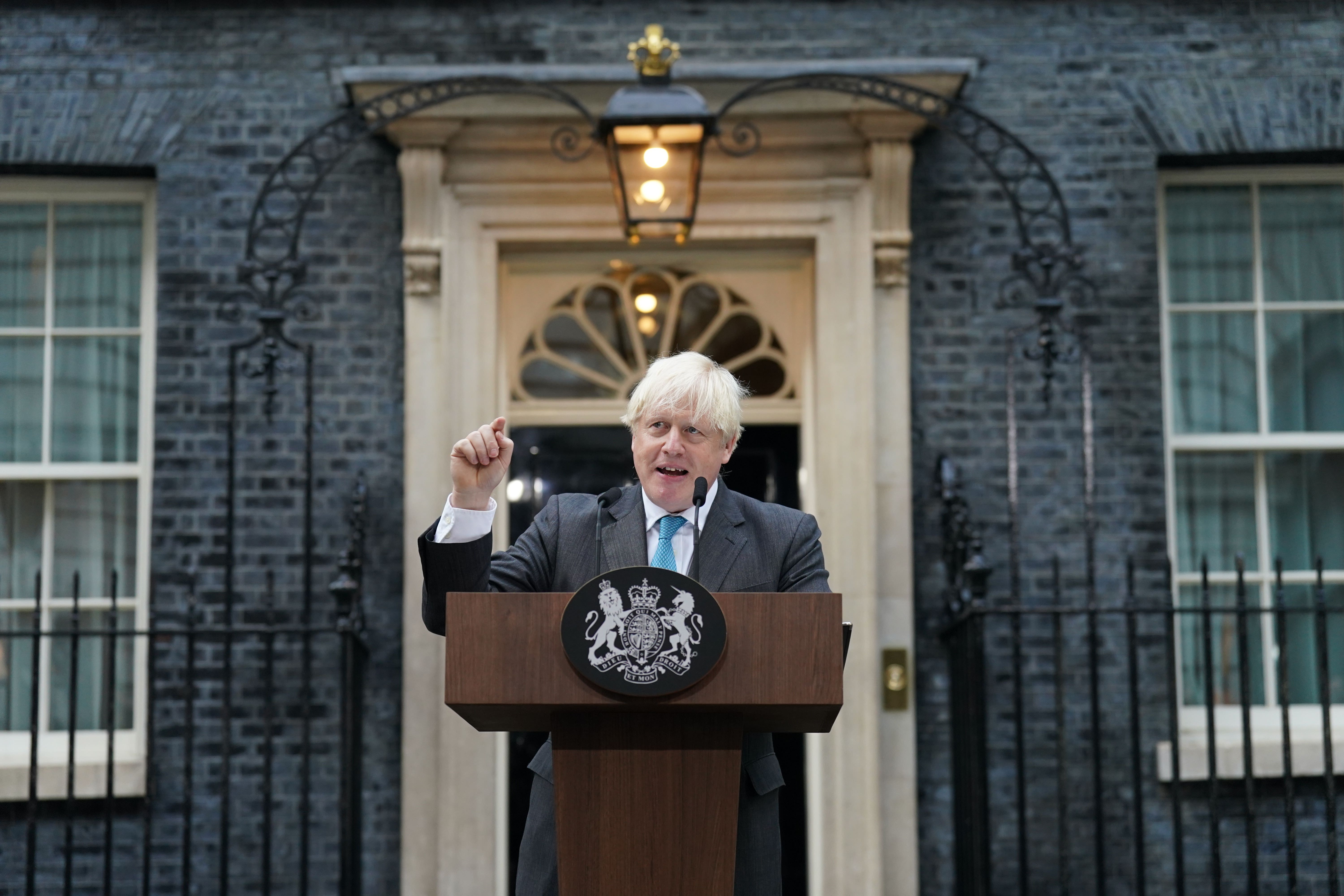Boris Johnson: The former PM who promised to get Brexit done
His resignation statement on Friday came just hours after the Government published his long-awaited resignation honours list.

Boris Johnson has called time on his political career by lambasting a committee of MPs whom he claims were biased and determined to see him go.
Mr Johnson, 58, announced he was stepping down as MP for Uxbridge and South Ruislip – and compared the Privileges Committee probe into whether he lied to Parliament over partygate to a “kangaroo court”.
His resignation statement on Friday, which was sent to the media just hours after the Government published his long-awaited resignation honours list, came after he received a letter from the Privileges Committee which Mr Johnson says made it clear they were “determined to use the proceedings against me to drive me out of Parliament”.
Mr Johnson wrote: “I have been an MP since 2001. I take my responsibilities seriously.
“I did not lie, and I believe that in their hearts the Committee know it.”
Mr Johnson led the Conservatives to a landslide election victory in 2019 – but was given a fixed penalty notice over Downing Street lockdown parties and then forced out by his own MPs after three years in office, following a string of scandals.
He resigned in July 2022 and his final speech in Downing Street appeared to hint at a comeback – including a reference to Cincinnatus, who was recalled from his farm to save ancient Rome from crisis.
Just months later, he emerged as an early front-runner to be the next prime minister.
His replacement Liz Truss crashed and burned after 45 days in the job, and had resigned after her policy programme spooked the financial markets.
At the time polling suggested he was still deeply unpopular with the public at large, although not as unpopular as Ms Truss and he had significant support among Tory members.
Mr Johnson largely kept a low profile following his resignation, apart from a tribute to the late Queen and continuing his steadfast support for Ukraine until in March, he found his political future was in the hands of the Privileges Committee.
He faced a grilling which lasted more than three hours from the committee where he insisted he “did not lie to the House” over his reassurances about Covid guidance being followed in Downing Street during the pandemic.
He told the panel it would have been “utterly insane” for him to have misled Parliament.
But even before becoming prime minister, he had been accused of racism and homophobia, as well as multiple affairs, and was forced to apologise to Parliament for failing to properly declare outside earnings totalling more than £50,000 on several occasions.
Despite this he seemed to continue defying political gravity, rising ever upwards from MP to mayor of London to foreign secretary and, eventually, into Number 10 itself.
He even built up a reputation for being able to win in unexpected places, starting with his bid for the London mayoralty in 2008.
Although not quite the Labour stronghold it is now, the capital was still a daunting prospect for a Conservative after two terms of “Red” Ken Livingstone, but Mr Johnson managed not only to win but then retain the mayoralty in 2012.
And then, in December 2019, his promise to “Get Brexit done” saw him lead the Conservatives to a landslide victory, picking up swathes of traditionally Labour territory.
But even with his majority, Mr Johnson was confronted by significant challenges.
He did manage to secure a Brexit deal, but his decision to reopen the question of the Northern Ireland Protocol suggested Brexit was not “done” while also opening him to accusations he was reneging on an agreement with the UK’s international partners.
Then came the pandemic, derailing many of his plans to “level up” the country and seeing him admitted to an intensive care unit as he was struck down with Covid.
MPs became rebellious as he broke manifesto pledges on tax rises, U-turned on social care, backtracked on rail promises and continued to impose Covid restrictions that some felt draconian.
And still scandal dogged him. Just as he appeared unassailable – leading in the polls, presiding over a successful Cop26 and a triumphant Tory conference – it all started to fall apart.
First came the Owen Paterson affair and then the revelations of partygate that saw him become the first prime minister to receive a criminal penalty while in office, before finally the Chris Pincher scandal brought an avalanche of ministerial resignations and his exit from Downing Street.
Bookmark popover
Removed from bookmarks